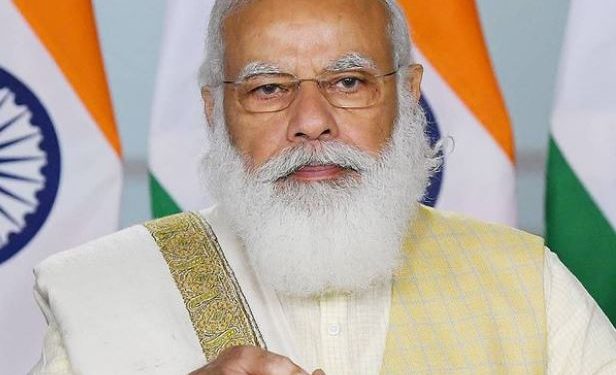New Delhi: Stressing on the need for a coordinated approach among the states and the Centre to achieve the ‘Aatmanirbhar Bharat’ (self-reliant India) goal, Prime Minister Narendra Modi Saturday said “ease of doing business and ease of living” is also among government’s priority to strong country’s economy.
Making strong case for repealing archaic laws for ease for doing business in India, the Prime Minister said the centre and states need to work closely to boost economic growth.
He further praised the Union Budget 2021-22 which was presented by Finance Minister Nirmala Sitharaman earlier this month, and said that people have made up their minds about what they want.
Speaking at the sixth meeting of the Governing Council of NITI Aayog, the Prime Minister also stressed on ‘zero defect, zero effect’ mantra which he gave in August 2014 to Indian entrepreneurs for better products–a direct reference to the need to make things without causing the environmental harm.
“The kind of positive response that has come on this year’s budget, it has expressed what the mood of the nation is. The country has made up its mind. The country wants to move fast, the country does not want to waste time now,” Modi said while attending the event virtually.
“In this year’s budget, the fund provided for infrastructure is also being discussed a lot. It will help the economy of India and create a lot of employment opportunities. It will have a multiplier effect.”
He further said that ‘Aatmanirbhar Bharat’ campaign is the way to build an India that produces not only for its needs but also for the world, and these productions will also stand the test of world superiority.
To achieve the goal, the Prime Minister added there is need for a better coordination among Centre as well as states and increase export.
The veteran BJP leader also suggested for putting a competition among states for increasing exports and begin a monthly review system.
“We have witnessed during Covid-19 how central and state governments worked together in helping the nation to succeed that created a positive image of the country globally. To make cooperative federalism more meaningful, and not just that, to take competitive cooperative federalism not only between the states but also to the district. So that the competition of development continues continuously,” Modi said.
The Prime Minister stressed on the policy framework and cooperation between the Centre and states, saying “coastal states are a fine example”. “Exports from the blue economy have unlimited opportunities. Why shouldn’t our coastal states take extra initiatives for the same?”
Prime Minister address also included housing schemes, mentioning “over 2.4 crore houses have been built in rural and urban India since 2014”.
“Another initiative is going on in which houses are being built by modern technology in six states in India. In a few months, strong houses will be built with this technology with new models,” the Prime Minister said.
The Prime Minister focussed on giving opportunity to private sectors.
“We are also seeing how the private sector of the country is coming forward with more enthusiasm in this development journey of the country. As a government, we also have to respect this enthusiasm, the energy of the private sector and give it equal opportunity in the self-reliant India campaign,” he said.
Modi said India managed to build a good image internationally during the Covid-19 period because the central and state governments worked together for the betterment of people.
The Governing Council meeting witnessed Ladakh taking part for the first time as a Union Territory (UT), in addition to the participation of Jammu and Kashmir as a UT.
The meeting presents a platform to discuss inter-sectoral, inter-departmental and federal issues. The governing council meets regularly, and its first meeting took place on February 8, 2015. The council, the apex body of the government’s think tank, includes all chief ministers, lieutenant governors of Union Territories (UTs), several Union ministers and senior government officials. Prime Minister chairs the meeting.
While most of the Chief Ministers were present at the meeting, West Bengal’s Mamata Banerjee gave it a miss. Banerjee had earlier also skipped the Niti Aayog’s meetings and termed it as a “fruitless” exercise, alleging that the body has “no financial power” and cannot support the state plans.
IANS







































